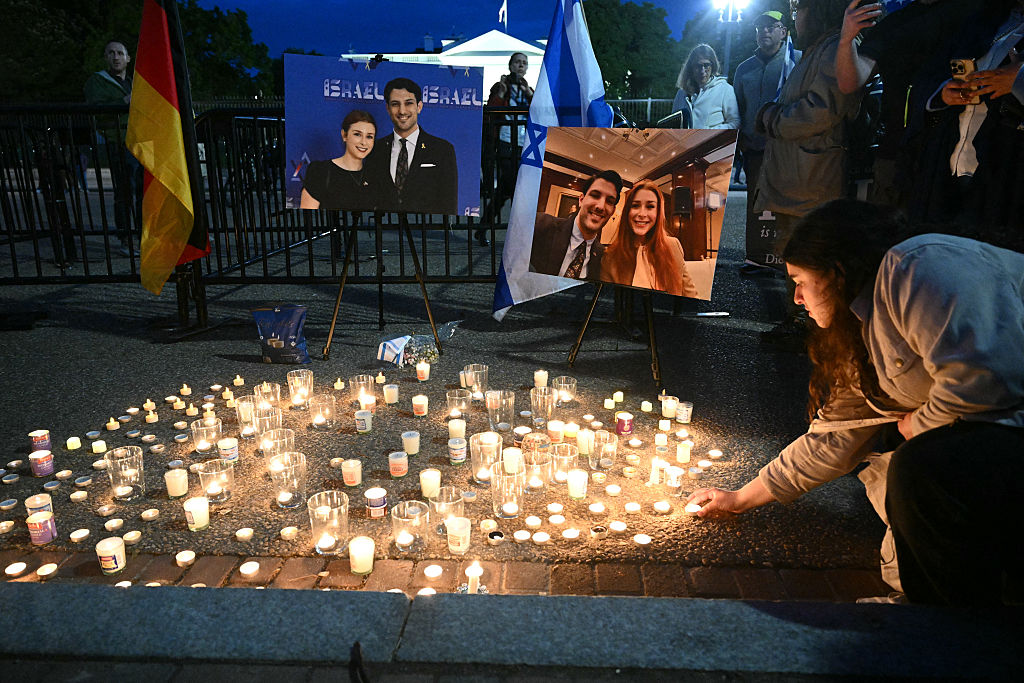Bringing Global Conflict Home
A country whose citizens are at each other’s throats is unlikely to solve the world’s problems.

Back in 1994, then Vice President Al Gore was giving a speech in Milwaukee when he mistranslated the national motto “E pluribus unum” as “Out of one, many.”
“You all share the American belief that there is strength in all our differences,” Gore told the local Institute of World Affairs. This was likely an accurate description of the assembled crowd at such a gathering as far back as the 1990s, though he got the national motto exactly backwards—it is actually “Out of many, one.”
While you can make an argument that is proof even our politicians’ gaffes were smarter 30 years ago, it does speak to the differing answers Americans have always given as to how it was possible to forge a nation out of disparate elements.
There are various answers to this question, many of which don’t comport well with the multiculturalist ideology to which Gore was paying lip service. There is real diversity, and then there is the diversity, equity, and inclusion variety.
But from settlers to immigrants, many who became Americans came here to escape the wars and hatreds of the old world. In the 20th century, that remained the motivation for any number of people even as the countries of origin became more diverse. No country, not even one as great as the United States, has a limitless capacity for this sort of thing. This is among the reasons open borders don’t work, regardless of whether family values stop at the Rio Grande.
Limiting immigration is one way to guard against bringing home the conflicts some immigrants themselves come here to escape. But this is not a panacea when homegrown ideologies lead people to want to join these fights without any meaningful personal or ancestral connection to them.
Elias Rodriguez, the alleged shooter in last week’s attack outside an American Jewish Committee event outside the Capital Jewish Museum in Washington, D.C. that left two Israeli embassy staffers dead, appears to be one such case. The suspect is from Chicago. A longtime left-wing activist, his politics might have predicted where his sympathies might lie in the war in Gaza, but not necessarily a proclivity to take up arms in that conflict or do violence to victims who can hardly be considered combatants.
There are plenty of reasons for Americans to care deeply about the victims of Hamas in the October 7 attacks of 2023, the civilian population of Gaza, Ukrainians being bombed by the Russians, or white farmers in South Africa. We are a big and rich country. Our taxpayer dollars are often involved to varying degrees, sometimes on multiple sides. The policeman of the world has many beats, some better policed than others.
What ought to be avoided is recreating the climate of hatred that exists in so many places overseas here in our own country. This is an inevitable pitfall of taking on so many of these conflicts as our own, especially at a time when we are so deeply polarized ourselves.
American citizens now often report cutting off their families over voting differences and disagreements on issues that have actually divided the country for generations. The diversity of opinion that exists in our land often threatens to tear it apart, much less the diversity of opinion that exists throughout the whole world.
Subscribe Today
Get daily emails in your inbox
If you cannot have dinner with your uncle who favors different marginal tax rates or spending levels, you may not be the best positioned to achieve a lasting peace in the Holy Land.
This is especially true when we view longstanding religious and ethnic tensions abroad through the prism of secular American ideologies, which have limited explanatory power not because they have nothing to teach us—there is growing investment in Western civilization as a whole on the right and a certain empathy that animates corners of the left—but because they are far from the whole story. If you really want to understand the lands whence your great-grandparents came and the people who live there now, intersectionality can really only get you so far.
There is also something to be said for the American example, which has the potential to go further than our interventions. It is extremely difficult for us to exhort others to lay down their arms when we begin to take them up against each other, often in the name of their causes.